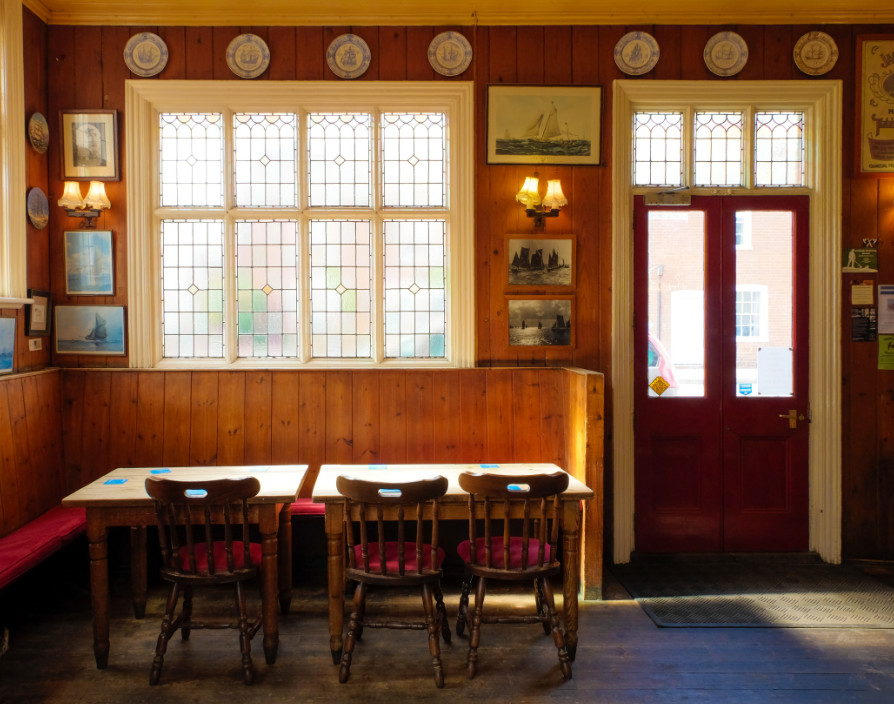The impact of the pandemic has been severe for many pubs and retailers across the UK. With shoppers still steering clear of the high street, footfall has dropped by around 40%, whilst there has been an estimated 125,500 job losses across the wider retail sector this year.
As part of the Government’s plans to help support retail, hospitality and leisure businesses in England, business rates have been halted for the 2020/21 financial year. This ‘holiday’ provides much-needed respite to struggling hospitality companies by mitigating against the impact of the outbreak on consumer demand and supply chain.
Yet, with the break set to end in April, reintroducing business rates could be detrimental for the retail and hospitality sector who are already fighting for survival ‘ especially following the new 10pm curfew for pubs.
Can pubs survive the pandemic?
The British Beer & Pub Association (BBPA) has warned that thousands of pubs across the UK could be forced to call time next year as they face an £800 million business rates bill come the end of March 2021 ‘ an average of £25,000 per pub, and a cost that not all will be able to afford.
Given that all these pubs made it through the lockdown ‘ over 15 weeks without being able to open their doors ‘ and have remained viable businesses, despite social distancing and significantly lower footfall, it would be devastating for them to fall at the final hurdle in the post-lockdown recovery. It would mean much of the Government’s vital support for the sector through lockdown would have been wasted, comments BBPA chief executive Emma McClarkin.
Meanwhile, trade body UKHospitality (UKH) has warned that at least 900,000 hospitality sector jobs could also be lost nationwide, while a coalition of retailers claims a further 10,000 shop jobs are at risk. That’s unless the Government takes action on business rates and provides sector-specific support.
Whilst there has been a number of support initiatives from the Government ‘ such as Eat Out to Help Out and a £500m investment into pubs and restaurants ‘ most policies have been temporary, stop-start, measures, and simply haven’t brought enough money in. Many businesses remain fragile and are reeling from the long-term impacts of COVID-19. As such, there is a desperate need for more stable and targeted support for the retail and hospitality sector to encourage growth and investment.
To deliver a long-term boost to the hospitality and retail sector, the Government must answer the calls for an extension on business rates until the 2021/22 financial year. Ending the rates holiday too soon will weaken these sectors, leading to job losses and a further shrinking UK economy.
Retail rates: time to reform
It’s not just the hospitality sector, either ‘ the retail sector faces an uncertain future if the rates return too. And it’s not just the business rates that retail must overcome. In fact, the entire rates system needs reviewing, and potentially overhauling, if retail companies are to thrive.
Business rates are calculated based on the property’s ‘rateable value’, which is re-evaluated every few years. Following the 2017 rates revaluation, lots of retailers with premises faced sharp business rates rises. Many of those affected were able to apply for upwards transitional relief ‘ which caps a big annual bill increase by slowing rates rises. However, in the business rates system, this transitional relief is funded by ‘downward phasing’ ‘ slowing the speed at which those retailers whose rates are valued to be lower get their bills reduced. This has the effect of putting heavier business rates in areas where rents are falling. For example, one Marks & Spencer store in Barrow saw its business rates bill fall only 2% from £102,000 (in 2017/8) to £100,000 (in 2018/9), despite a rateable value drop of over 25% ‘ leading to an overpayment of around £20,000. Ultimately, the Barrow store was closed by M&S, the business rates in the area likely being a key factor in the decision.
Beyond the initial cost, many retailers also fear improving their stores because of the increase in rate bills that will follow investment. This hesitation hampers growth and investment in retail properties, and damages job creation.
Last year, more than 50 retail industry leaders, including big-name high-street brands, including M&S, Boots and Debenhams, called on the Chancellor to deliver real action on business rates. That’s because the current business rates process is broken ‘ it not only stifles growth but is also leading to the closure of stores and the decline of the high street in towns across the UK. With the state of the industry on a knife edge, it’s crucial the Government answers that call and reforms the business rates system to help retailers save the sector.
Boosting businesses post-pandemic
It is now a priority that the Government do everything to enable the retail and hospitality sector to bounce back following this period of immense uncertainty. One of the ways to achieve this is for the Government to extend relief to these businesses for at least another 12 months. This is particularly important given that the retail and hospitality sectors employ over six million people (3.2 million in hospitality and 2.9 million people in retail). By addressing business rates, this could help save our nation’s pubs, shops and hospitality services ‘ and all the jobs they provide.
Nevertheless, whether or not the rates relief is extended, innovation can help businesses in the hospitality and retail sectors to increase profitability. Potential growth could be generated by the right planning and development, for example, providing more space for customers and additional services, could potentially increase profits. In fact, pubs could potentially convert upper floors of their buildings into residential accommodation, or even expand their buildings to provide further accommodation, to increase revenues. Companies operating in the retail sector could also develop additional spaces that allow for social distancing, or serve food and drink to shoppers. This would provide another source of income for businesses.
In today’s uncertain climate, the retail and hospitality industry is now being tested more than ever. However, we have seen time and time again, invention is born out of necessity. In light of the pandemic, it is important that these industries apply the innovation and imagination to thrive rather than waiting for Government action during these difficult times.
“
Share via:








































